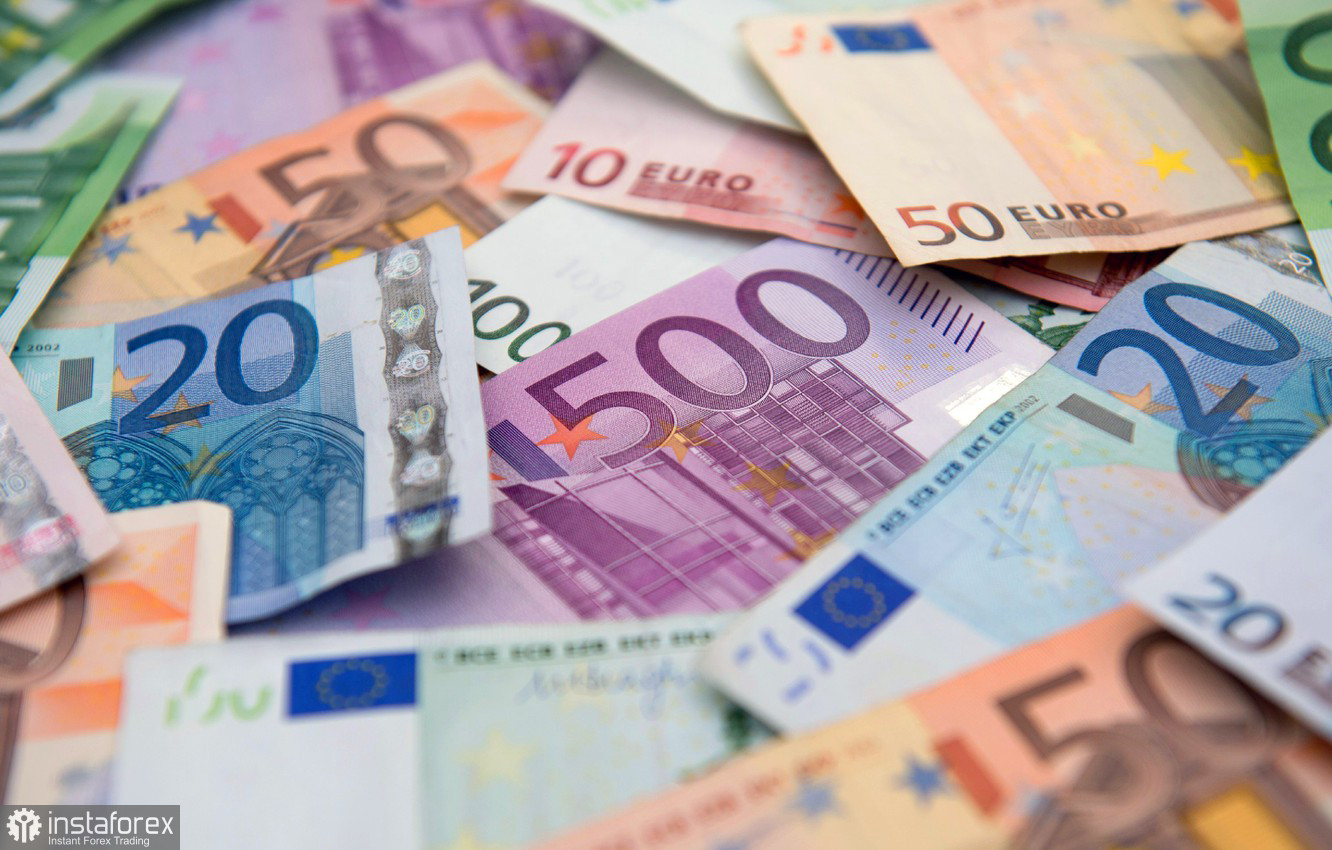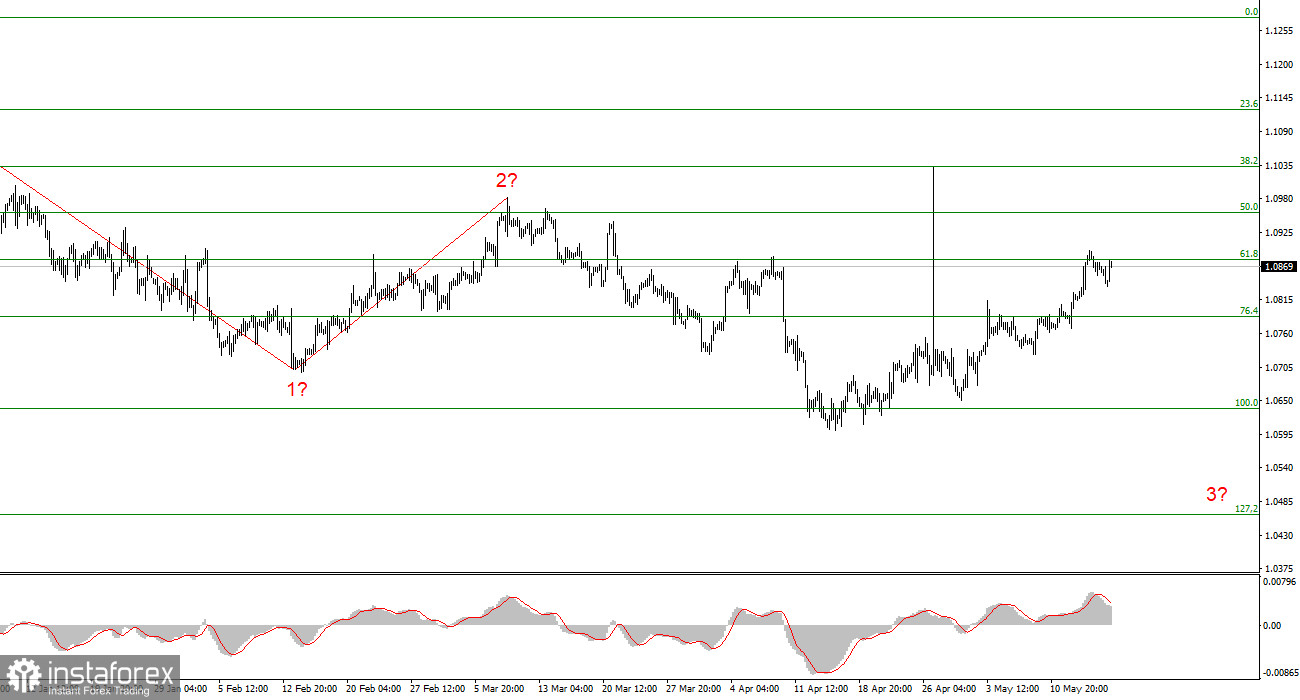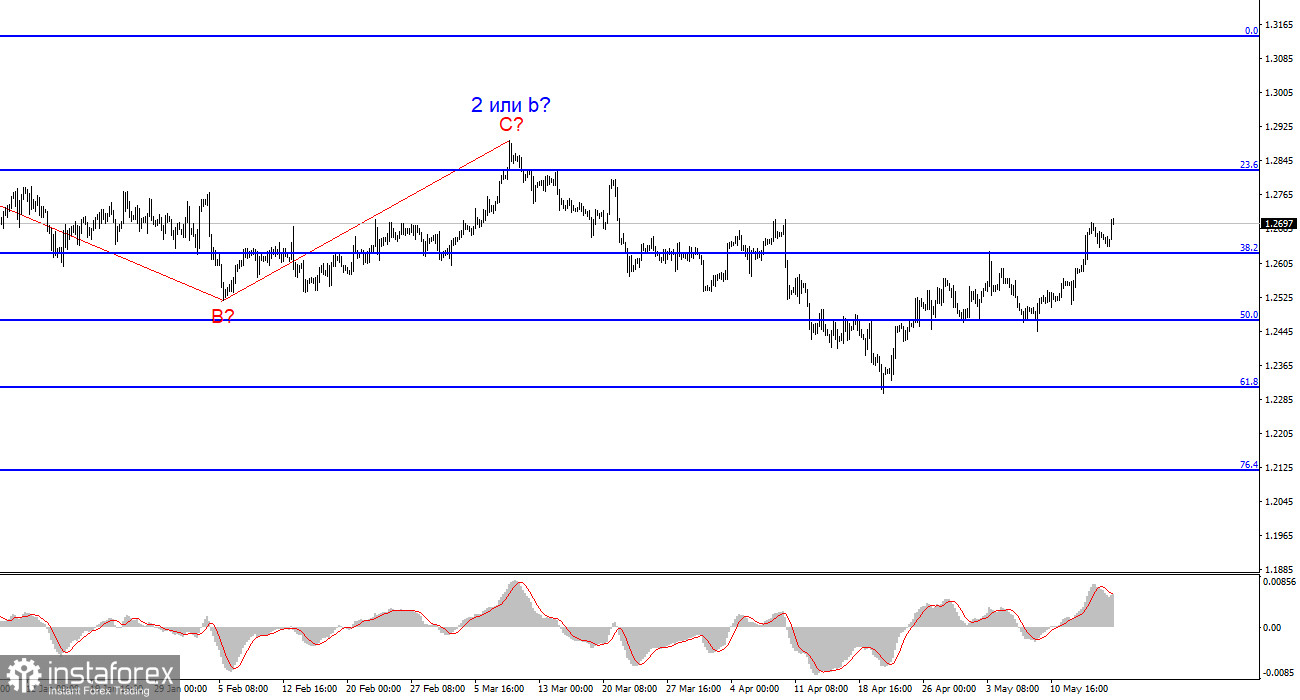
The euro has been rising for over a month now, raising many questions about the justification for such movement. Currently, the latest upward wave still fits within the current wave pattern, but even a slight increase in quotes could break it or require significant adjustments. Therefore, the 1.0880 mark is very important for both the dollar and the euro. However, in this review, we will not discuss the wave pattern but the news background. In my opinion, the market uses many factors to buy the euro, which is not entirely fair to the dollar. Thus, it is important to understand which upcoming news might trigger a rise in the EUR/USD pair and whether there will be any at all.
Let's look at the event calendar. The first important event in the euro area won't happen until Wednesday. European Central Bank President Christine Lagarde is scheduled to speak, and I do not expect any new information from her at this time. Lagarde expressed her position two or three months ago. According to her, the beginning of policy easing is permissible at the start of summer. Since then, nearly the entire Monetary Policy Committee has voiced support for the president, and only Isabel Schnabel has expressed doubt that the rate will be lowered directly in June. However, the vast majority of her colleagues believe that June is a suitable month for the first round of rate cuts. Therefore, I believe that Lagarde will not change her stance.

The business activity indices in the services and manufacturing sectors for May will be released on Thursday, with no significant changes expected. The manufacturing sector is 99% likely to remain below the key 50.0 mark, while the services sector is 99% likely to stay above this mark. Of course, the actual data of these indicators and their relation to market expectations will matter.
The final estimate of Germany's GDP report for the first quarter will be released on Friday. The market expects a 0.2% growth quarter-on-quarter, which is quite small for an economic recovery. The economic recovery will not begin until the ECB starts lowering rates. As we can see, there are no substantial reasons for the euro to rise.
Wave analysis for EUR/USD:
Based on the conducted analysis of EUR/USD, I conclude that a bearish wave set is being formed. In the near future, I expect an impulsive downward wave 3 in 3 or c to form with a significant decline in the instrument. I am considering short positions with targets near the 1.0462 mark. An unsuccessful attempt to break through the 1.0880 mark, which corresponds to 61.8% by Fibonacci, may indicate that the market is ready to sell.
Wave analysis for GBP/USD:
The wave pattern of the GBP/USD instrument suggests a decline. I am considering selling the instrument with targets below the 1.2039 level, because I believe that wave 3 or c is being formed. A successful attempt to break 1.2625, which corresponds to 38.2% Fibonacci from above, will indicate the completion of an internal, corrective wave 3 or c, which looks like a classic three-wave pattern right now.
Key principles of my analysis:
Wave structures should be simple and understandable. Complex structures are difficult to work with, and they often bring changes.
If you are not confident about the market's movement, it would be better not to enter it.
We cannot guarantee the direction of movement. Don't forget about Stop Loss orders.
Wave analysis can be combined with other types of analysis and trading strategies.
 English
English 
 Русский
Русский Bahasa Indonesia
Bahasa Indonesia Bahasa Malay
Bahasa Malay ไทย
ไทย Español
Español Deutsch
Deutsch Български
Български Français
Français Tiếng Việt
Tiếng Việt 中文
中文 বাংলা
বাংলা हिन्दी
हिन्दी Čeština
Čeština Українська
Українська Română
Română


